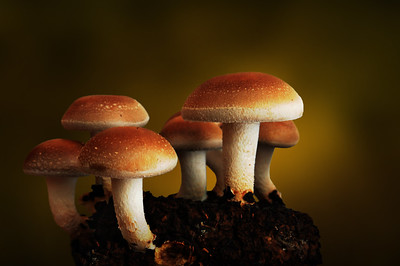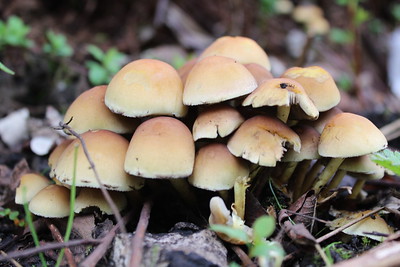The Magic of Mushrooms

Whilst considered a love-hate food for many, mushrooms have the potential to be a sustainable saviour for our planet.
Mushrooms are a sustainable food source due to their ability to grow in sub-optimal conditions. They are often found growing without pesticides, fertilisers, sunlight and with smaller amounts of water and space than other foods. They also act as carbon sinks, storing carbon in their mycelium and reducing the carbon entering our atmosphere.
Whilst the mushroom body is conventionally used for food, this makes up only a small part of the fungi. It is the by-product of fungal growth, and what goes on beneath the soil that is piquing scientific curiosity.

Mykor produces sustainable construction materials ‘MykoFoam’ out of waste materials, using mushroom strains as binding agents. Ecovative produces biomaterials using mycelium, like their ‘MycoComposite’, a substitute for polystyrene foam.
Biomaterials can also be used to combat the fast fashion industry. French product designer Courtney Giovagnoli uses biodegradable ‘Mycoplastics’ (mushroom textiles).

Similarly, products are being produced for interior design. Danielle Trofe has grown her ‘Mush-Lume’ lighting collection using mycelium in custom moulds. These mushroom-based products reduce the need for traditional manufacturing materials and techniques. The majority are biodegradable, therefore their production limits carbon emissions and waste compared to conventional industry products.
Some projects, such as Thomas Sault’s ‘myco-hex’ mycelium and sawdust stuffed tiles, use mycelium’s ability to absorb air pollutants to directly address emissions. Other companies are producing sustainable produce out of fungal tissues, including ‘sushi quality seafood’ and fungi-based meat. These alternatives eliminate issues with allergies found in other traditional and plant-based products. They also reduce the ingestion of micro-plastics, pesticides and antibiotics entering our bodies that can occur with traditional meat consumption. However, they fundamentally combat the stress placed on the oceans and agricultural systems from high demand for produce.
The economic viability at a large scale is yet to be assessed for many of these products. However, companies like Aqua Cultured Foods suggest that their sustainable products are cheaper than traditional seafood when they scale production. Continuous development of sustainable alternatives may help mitigate the effects of the overproduction, overconsumption, and throwaway culture that we live in.
So, could the future have mush-room for mushrooms?

